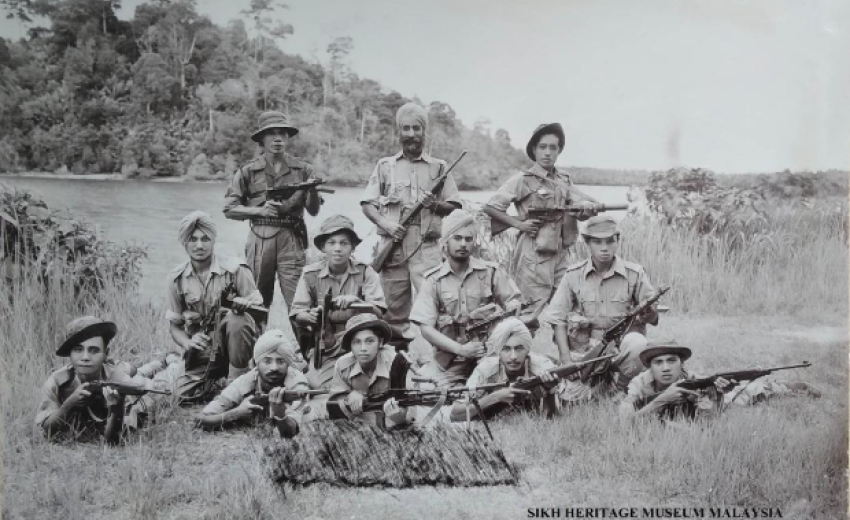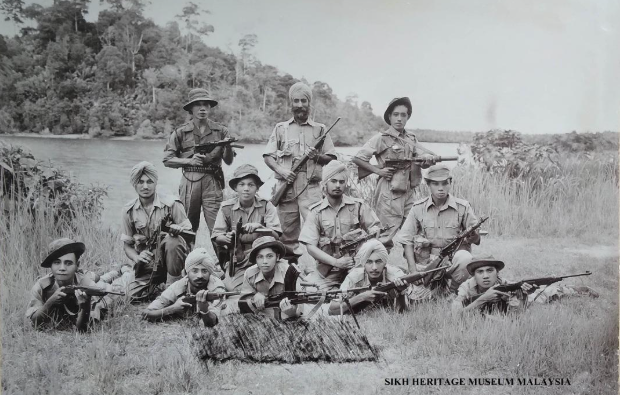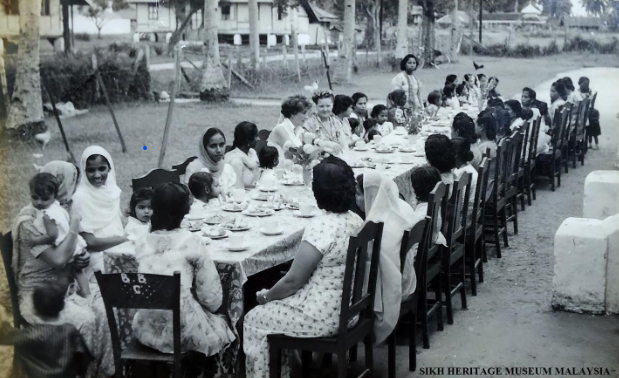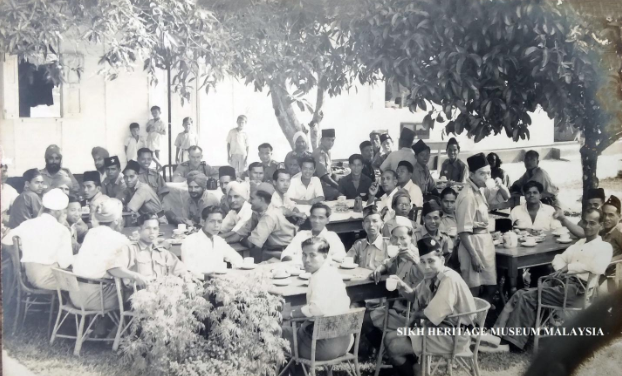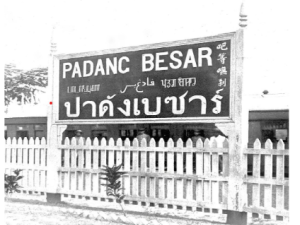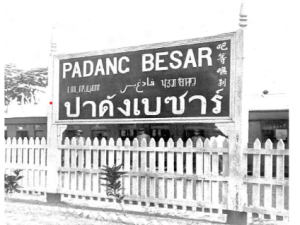SITIAWAN POLICE JUNGLE SQUAD
Young men of diverse races and creeds, fought side by side in the battle for Malaya, expressing their admiration for each other's bravery and unwavering devotion to duty.
Behind the remarkable achievement of combating communist insurgents lies a profoundly inspiring story of unity and bravery. Young men of diverse races and creeds fought side by side in the battle for Malaya, demonstrating admiration for each other's courage and steadfast commitment to their duties. Their contributions were vital in maintaining order and supporting the transition from colonial rule to independence.
This diverse Police force united varied perspectives and experiences, fostering innovation and adaptability essential for effective military operations. Ethnic diversity played a pivotal role in mirroring society at large, building trust and strengthening relationships between Police personnel and the communities they served.
The unwavering courage of the jungle companies, who risked their lives to protect their homeland and uphold justice, stands as a testament to the resilience of the human spirit in adversity. Their determination during the prolonged battle against the communist insurgents has inspired the entire nation.
The "Jungle Squad," a highly trained jungle police force, was established (formerly known as "Flying Squad") in 1948, focusing on anti-bandit patrols in Malaya's challenging terrains. In November 1950, they became "Jungle Company," reflecting their evolution during Malaysia's journey to Independence, especially during the Malayan Emergency. They were reorganized into special light infantry companies with a fierce determination to combat the insurgency that had taken root in the region.
Initially, there was no coordinated system between police and military intelligence, but this changed under General Briggs in 1950, who implemented a committee system for better cooperation. The police also created the Special Branch in August 1950 to enhance intelligence operations. The Malayan Security Forces' success during the Emergency is largely credited to the effective intelligence work of the Special Branch, vital in countering the Communist Party of Malaya's insurgency.
SITIAWAN JUNGLE SQUAD
Seated in 2nd row from L-R. Detective Ching Chee Ming (2nd from left) and Sergeant Major Pritam Singh (In the middle).
The story of the Sitiawan Jungle Squad in Perak exemplifies how individuals from diverse backgrounds united to achieve a common goal, as they fought valiantly against communist insurgents. During Malaysia’s journey to independence, police officers Pritam Singh Grewal and Ching Chee Ming significantly contributed to this struggle, maintaining order and supporting the transition to independence.
The inspiring tale of Chief Sub Inspector Pritam Singh and Detective Sergeant Ching Chee Ming reveals deep patriotism and love for their country, which invigorated the patriotic spirit within their team. Both members of the Sitiawan Jungle Company, their bravery embodies the best of humanity, yet their story remains largely unknown, kept alive by their families.
According to Mrs. Sarjit Kaur, 80 years old and the daughter of Pritam Singh, her late father Sergeant Pritam led the police jungle squad in Sitiawan, Perak. This specialized squad comprised personnel from various ethnic backgrounds, including Malays, Chinese, Sikhs, and Punjabis, all rigorously trained for jungle warfare and often supported by Chinese detectives.
Seated in the front row 2nd from right Detective Ching Chee Ming and Standing at the back row Sergeant Major Pritam Singh.
Under his leadership, Pritam transformed his squad into one of the most formidable anti-bandit units in Malaya, leading the pursuit of communist terrorists and delivering significant blows to their operations.
During jungle missions, Sergeant Pritam Singh contracted tuberculosis. After recovery, he transitioned to desk duties but remained devoted to his service, earning several commendations.
Mrs. Sarjit Kaur shared that while many personnel returned from operations, some sustained injuries, and others made the ultimate sacrifice. Despite these challenges, they took immense pride in their service, showcasing unwavering unity across diverse racial and religious backgrounds. Her father's leadership was instrumental in promoting ethnic diversity and fostering a strong sense of camaraderie.
According to Ching Bee Geok, a dedicated lawyer in Sitiawan, Perak, her father, Ching Chee Ming, was a proud member of the Sitiawan Police Jungle Company before taking on the vital role of a detective in the special branch. A former student of Nan Hwa High School, Chee Ming shared his classroom with Ong Boon Hua, known as Chin Peng ,the commander of the Communist Party of Malaya . While Chin Peng sought to influence his peers to join the communist party, Chee Ming stood firm in his values and chose not to align with their cause.
The communist movement strongly targeted youths, aiming to recruit students to support a communist state. In response, Chee Ming completed his schooling early and enlisted in the police force.
As a plainclothes detective, he adeptly gathered a network of student informants. Despite the dangers, including the tragic loss of many colleagues to insurgent attacks, Chee Ming remained steadfast in his duty during the Emergency, contributing significantly to dismantling bandit gangs and proving himself an invaluable asset to the police force.
Rising to the rank of detective sergeant, Chee Ming retired in 1973, leaving behind a legacy of courage and commitment. His insight, that as long as people value peace and stability, Malaysia will flourish, remains a poignant reminder of the power of unity.
UNITY IN DIVERSITY
The spouses and the children of the police personnel enjoying the festive delicacies, and sweets at Police barracks.
Dr. Partap Singh reflects on the sense of “unity in diversity” that flourished among the squad members and the police barracks in the 1960s. As the son of Corporal Bachan Singh, a member of the police jungle squad at Teluk Anson, Partap recalls the close bonds formed among neighbors, where trust and togetherness prevailed.
Children played side by side, strengthening their community ties, while festive gatherings allowed for the sharing of food and cultural experiences. Though today's environment poses challenges to the harmony enjoyed in the 1960s and '70s, those memories serve as powerful reminders of the importance of fostering inclusive communities.
Police personnel of all races and creeds enjoying tea and snacks at Sitiawan police station in Perak.
The story of the Sitiawan Police Jungle Company stands as a beacon of how diverse individuals can unite for a common purpose. This spirit of collaboration and teamwork offers hope for Malaysia's future. Instilling the value of patriotism is essential for uniting our Malaysian society.
By nurturing a strong sense of love for the country in the younger generation, we can empower future generations to uphold the spirit of nationalism and unity that has always defined our collective identity.
